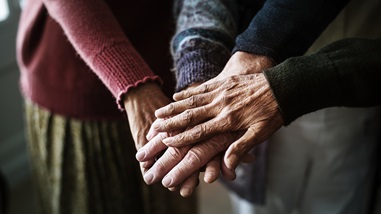
5 reasons why some people live longer than others
The secret to a longer life is unknown, but there is evidence to suggest what can help. Some factors are within our control, while others are linked to genetics. We take a look at why some people live longer than others
The 20th century saw a dramatic increase in average life expectancy in the UK and across the world.
1. They have the right genes
Studies have found that a long lifespan may be linked to genetics, making it a lottery for us all. One study from the Albert Einstein College of Medicine looked into 500 individuals who had lived to be 95 or older and identified common genotypes, rather than lifestyle variables, that caused them to outlive others.
They included APOC3, which correlates to reduced risk of heart attacks, and IGF-r, which affects how the body regulates insulin-like growth factor 1, a protein linked to proper growth development.
CETP was also identified as a genotype that contributes to longer life, as it is tied to increased levels of HDL (good) cholesterol and lower levels of LDL (bad) cholesterol.
2. Their mother is younger
There is other research that points towards younger mothers. It suggests that people whose mother gave birth to them at age 25 or younger generally lived longer than those with an older mother.
The exact reasons why are uncertain, but evidence does suggest that the healthier eggs of younger mothers is a contributing factor.
3. They have strong friendships
Also linked to longevity is the strength of an individual's social life and how lonely they feel. A Brigham Young University study concluded that loneliness and social isolation are just as threating to longevity as obesity.
This is especially true among younger generations, despite the connected world we now live in where social networks allow us to contact others over long distances.
The connection between mental health and physical wellbeing is now widely known. Depression has been linked to a 67% increase in the risk of death from heart disease and a 50% increase in the risk of death from cancer.
It's a clear sign that if we all want longer lives, we need to look after our mental state as well as our physical health.
4. They drink lots of tea
Our food and drink habits have a big impact on our health, and tea gets a lot of good press when it comes to health benefits. This is backed up by an interesting project called Blue Zones, which began life as a study from National Geographic. It explored the lifestyles of communities that have the highest concentration of centenarians.
Factors such as strong social ties, close families and ample exercise were shared by the communities under the spotlight, but one other stand-out factor was tea consumption.
Green tea is considered one of the best types as it is high in the anti-oxidant catechin which is closely associated with good cardiovascular health and a reduced risk of cancer.
5. They're physically stronger
Muscle strength has also been aligned with living longer. A study of more than a million Swedish teenage boys concluded that 'low muscular strength in adolescents is an emerging risk factor for major causes of death in young adulthood, such as suicide and cardiovascular diseases'.
Those who scored above average during initial muscular strength tests were at a 20-35% lower risk of early death from any cause, including cardiovascular disease. They were also less likely to suffer from mental illnesses such as schizophrenia and depression.
Being as healthy as possible gives you the best chance of a long life.
Why are people living longer?
The 20th century saw a dramatic increase in average life expectancy in the UK and across the world. The reason for this increase in life expectancy is reduced mortality rates, which have dropped due to societal and medical developments such as:
- Medical advancements (such as the development of vaccines and the discovery of antibiotics)
- Better access to healthcare
- Improvements in nutrition
- Better hygiene and living conditions
How long do people live?
In 1920, life expectancy for males was 56 years and for females 59 years. 100 years later and these figures have increased to 79 years for males and 83 years for women.
The increase in life expectancy has now slowed, however the above factors remain the same, so it's highly unlikely that life expectancies will drop again without significant and unexpected factors coming into play.

What can I do to live a long healthy life?
Many people want to live as long as possible, and while we can all drink more tea and build strong friendships, some factors remain out of our hands. You can't change your mother's age or your genetic makeup. What you can do is make sure you're looking after your physical and mental health.
Being as healthy as possible gives you the best chance of a long life. This could include:
- Eating a balanced diet rich with nutrients
- Having an active lifestyle with regular exercise
- Looking after your mental health and protecting yourself from unnecessary stress
- Stopping smoking
- Limiting your intake of alcohol and avoiding recreational drugs
- Attending all routine doctor's appointments and health screenings
- Surrounding yourself with family and friends that make you feel happy
Remember, there's no formula for how to live longer.
Read all our tips on maintaining a healthy lifestyle
How to get started
If you are worried about your health or think you're due a 'health MOT', get in touch to find out about our health assessments. We can give you tips on how to live happily and healthily as well as detecting medical issues as early as possible.
Tags
How do I book an appointment?
If you're concerned about symptoms you're experiencing or require further information on this subject, talk to a GP or see an expert consultant at your local Circle Hospital.